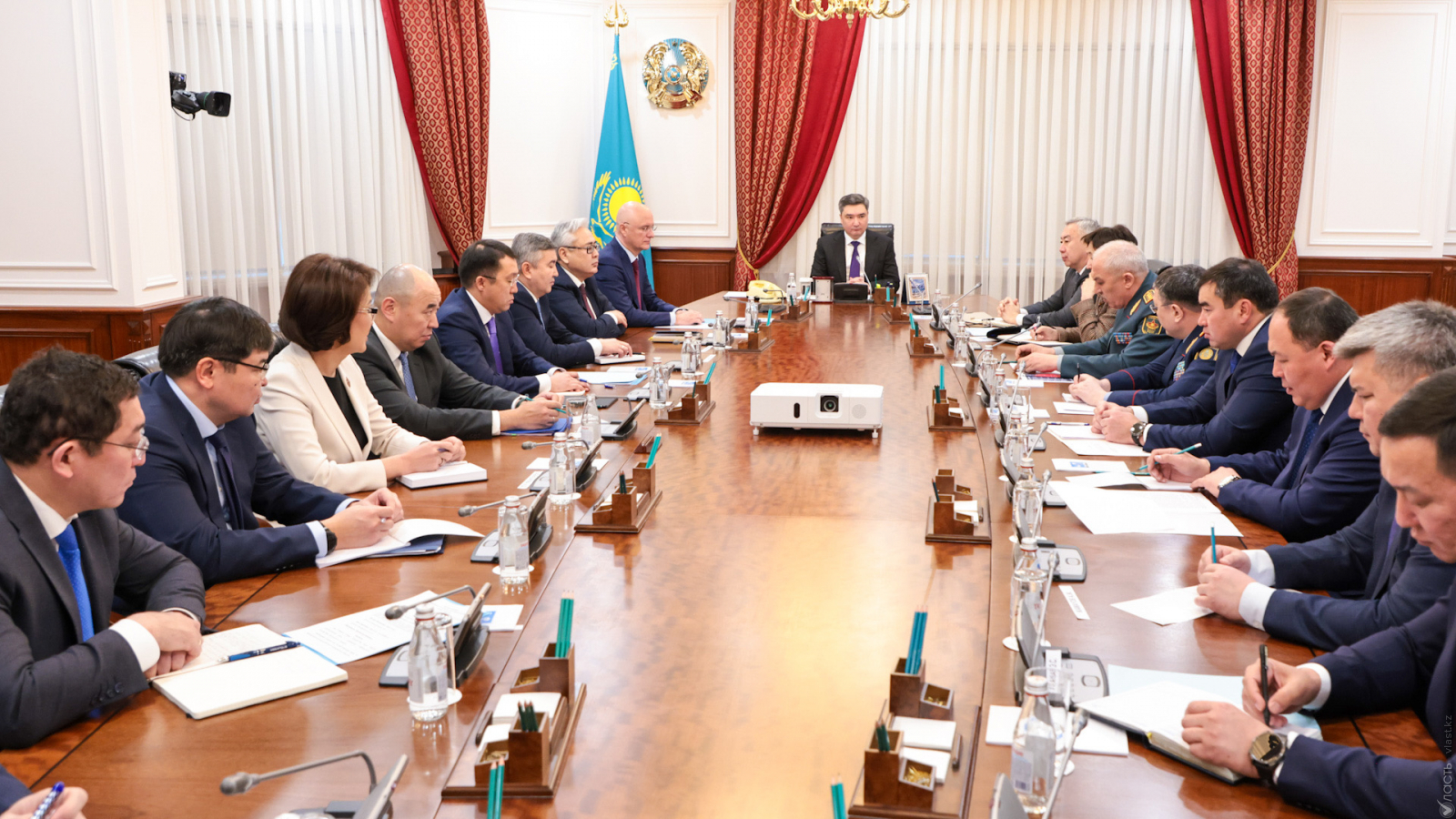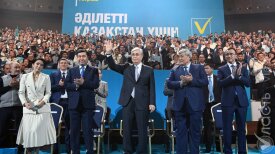President Kassym-Jomart Tokayev ordered on November 22 that the central and local governments secured the main civil and military infrastructure, after the escalation in the conflict between Russia and Ukraine. After the presidential order, Prime Minister Olzhas Bektenov held an operational security meeting with ministers and defense officials. The order comes against the backdrop of the Ukrainian military’s first attacks on Russian territory with Western-made missiles and the Russian government’s use of mid-range ballistic missiles in retaliation.
Askhat Khassenov, the head of state-owned oil and gas company Kazmunaigas, told the press on November 22 that striking oil workers in Zhanaozen should return to work unless they want to face legal consequences. The workers are employed by UBR, a drilling service company established in 2011 to absorb the workers that were fired by Ozenmunaigas in connection with an eight-month strike that culminated with the killing of at least 16 striking oil workers.
From 2022, 6,665 Russian citizens were granted citizenship in Kazakhstan, the ministry of internal affairs told Vlast. Around one third of them were considered Qandas (ethnic Kazakhs formerly living abroad). In addition, the ministry also noted that the government granted 33,677 residence permits to Russian citizens in the period between February 2022 and October 2024. At the same time, according to the ministry of labor, the number of Russian citizens working in Kazakhstan shrank by 44% to 37,272 in the first half of 2024, compared to 2023.
For the next three years, the government will be allowed to take 2 trillion tenge ($4 billion) annually from the National Fund, according to a new law passed on November 21. These are so-called “guaranteed transfers,” but the government can also access “targeted transfers” bypassing parliament. For 2025, the government plans to withdraw 3.2 trillion tenge ($6.4 billion) in targeted transfers.
Lower-than-expected GDP growth, a decrease in oil production, and extra costs related to state programs led the Senate to approve on November 22 a 60 billion tenge ($120 million) addition to the state budget next year. In his speech, Senator Sultanbek Makezhanov also noted that the plan to keep inflation stable within the 5.5% – 7.5% corridor is “just a slogan.”
In an effort to stabilize the currency market, Aliya Moldabekova, the Central Bank’s deputy chair, said that quasi-state companies must be obliged to sell 50% of their earnings in a foreign currency. Until August 2023, quasi-state companies had to sell 30% of foreign currency earnings. The rule was since suspended, but the Central Bank said it could be reinstated if the conditions changed.
At a press briefing on November 22, a Kazmunaigas spokesperson said the oil and gas company does not plan to buy back the shares it sold to the ministry of finance last year. Samruk-Kazyna, the national holding that owns Kazmunaigas, alongside the ministry of finance (20%) and the Central Bank (9.6%) will continue to control the company. At the end of 2022, Kazmunaigas sold a 3% stake in local stock exchanges, raising around $300 million.
Kazakhstan’s ministry of energy said on November 18 that production at the Tengiz oil field fell by 30% in connection to repairs to damages from corrosion. Most of Kazakhstan’s oil is produced at Tengiz, which is on track to produce slightly less oil than last year. In the first nine months, it produced 21.4 million tons, a 1.5% reduction compared to the previous year.
Kazatomprom, the state-owned uranium miner, said it obtained a fresh license to explore the northern section of the Budenovskoye basin in the Turkistan region. Since the summer, Kazatomprom has obtained a number of new exploration licenses.
While it has no wage arrears towards its staff, the massive steelmaking plant Qarmet still owes $47 million to its contractors, a company spokesperson told Vlast on November 19. When local investors bought the plant from ArcelorMittal in December 2023, the company’s outstanding debt amounted to $295 million.
The Supreme Court ordered on November 21 that the former head of a local forestry department pay 21.4 billion tenge ($43 million) in damages related to wildfires in the Kostanai region two years ago. Asgat Zhakashev was detained just days after wildfires spread across the region in September 2022. He was later sentenced to 4.5 years in prison for abuse of power.
A court in Almaty prolonged on November 22 arrest for five activists that were detained in early October ahead of a referendum on the construction of a nuclear power plant. They are accused of planning mass riots and calling to challenge the government.
Jailed civic activist Marat Zhylanbayev has been on hunger strike since November 13, his lawyer told Vlast on November 20. Zhylanbayev was arrested last year for participating in a banned organization and financing an extremist organization. In June, the Supreme Court refused to allow a cassation appeal for his case. This is Zhylanbayev’s second hunger strike this year.
The Financial Monitoring Agency said it suspects that Perizat Kairat, the chairwoman of the Biz Birgemiz charity, embezzled 200 million tenge worth of donations earmarked for Palestine. Kairat was put under arrest for two months on November 16, pending trial.
A court in Almaty fined Azattyq, the local section of Radio Free Europe/Radio Liberty on November 20, for "spreading false information" in relation to a trial against Daniyar Adilbekov, a journalist. Azattyq was sanctioned with a fine of 184,000 tenge ($375) and admitted that its video from September incorrectly pointed to a prosecutor's request of eight years of imprisonment against Adilbekov. In October, Adilbekov was found guilty of spreading false information and sentenced to 4.5 years in prison.
Поддержите журналистику, которой доверяют.








